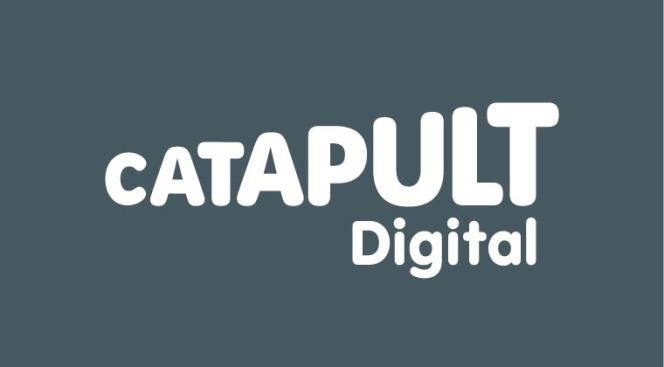
Background
Companies have been repeatedly told that data is one of their most valuable commodities, but realising the full value of that data may require re-mixing, comparison, or computation against data held by others. Unfortunately, sharing data is one of the hardest things for companies to do, because of the perceived commercial and legal risks. Even within a single organisation, sharing data can be considered to create large security or privacy risks.
The last few years have seen the emergence of technologies which allow for the secure collection, sharing, processing, and storage of data without the downsides of reducing privacy of users, or compromising corporate security. These Privacy Enhancing Technologies (PETs) have the capacity to make data sharing both safe and effective. These technologies form the basis of various new ways of doing business, with many being highlighted in recent Gartner reports as opening up new ways of exploiting data.
Now is the time to look further at case studies, models and demonstrators that show such techniques can perform what at first sight seems impossible: to process data without seeing it. The technology is so counterintuitive, and opens up such new ways of working, that we have identified a need to facilitate a greater understanding of these technologies amongst end-users, without them necessarily needing to know exactly “how” it works.
Aims and Objectives
Developed with academic partners and in collaboration with the Digital Catapult, this events series recognised the need to help business and industry find effective ways to utilise these new privacy enhancing technologies. Therefore, these events were of interest to anyone in business and industry who had a need to share and/or process data securely, as well as those focused on corporate CyberSecurity.
Events 1-3 featured talks from experts from companies developing these technologies. The talks highlighted why PET technologies can be trusted and how they enable the value in data to be unlocked; without needing to compromise on the privacy or security of the said data. They also highlighted how users can go about exploring and running tests on them, across a range of potential application domains, from inter- to intra- company security.
We had five different discussions, in each of which Nigel Smart (KU Leuven) hosted and asked questions of each of the different guests.
Thursday 19th November 2020, 14.00-15.15
Multiparty computation (MPC) – Dan Bogdanov (Cybernetica)
A sub-field of cryptography which has been applied to many use cases with potential applications in long-term shared data governance. Current deployed applications ranging from data sharing within organisations through to securing an organizations internal infrastructure..
Monday 30th November 2020, 10.00-11.15
Fully Homomorphic Encryption schemes (FHE) – Rand Hindi (Zama)
A form of encryption which allows computations on encrypted data.
Tuesday 8th December 2020, 14.00-15.15
Zero knowledge proofs (ZK proofs) – Eli Ben Sasson (Starkware)
A cryptographic technology that allows one party to prove a statement to another, without the need to reveal the actual values being proven. Such technology forms the basis of many new applications in distributed ledgers/blockchain.
Tuesday 15th December 2020, 10.00-11.15
End-User Perspectives – Mark Craddock (GCATI) and Matt Lowe (Financial Conduct Authority)
Perspectives from end-users considering using PETs and what the potential challenges for implementing the technology might be. To include discussion of the work of the UN Privacy Preserving Techniques Task Team from the BigData UN Global
Working Group on a secure data policy framework. There will also be insights into PETs in the financial sector, such as how they cans can facilitate the sharing of information about money laundering and financial crime concerns, while remaining compliant with data security laws.
Tuesday 19th January 2021, 10.00-11.15
PETs from an Investors Perspective - Lawrence Lundy (Lunar Ventures), Yuval Shachar (Team 8), Alex van Someren (Amadeus Capital Partners)
This discussion will feature investors perspectives on near term future opportunities and developments for privacy enhancing technologies
Registration and Venue
The workshops took place virtually via Zoom.
Working with Digital Catapult
Industry Groups:
https://www.mpcalliance.org/
https://homomorphicencryption.org/
https://zkproof.org/
Conferences:
https://rwc.iacr.org/
PodCasts:
https://www.zeroknowledge.fm/
https://rwcpodcast.buzzsprout.com/
Crowdcast series about STARKs: https://www.crowdcast.io/elibensasson
MeetUps:
https://www.meetup.com/fhe-org/
Links from Tuesday 15th December:
https://www.digitalsandboxpilot.co.uk
http://publications.officialstatistics.org/handbooks/privacy-preserving-techniques-handbook/UN%20Handbook%20for%20Privacy-Preserving%20Techniques.pdf
https://royalsociety.org/-/media/policy/projects/privacy-enhancing-technologies/privacy-enhancing-technologies-report.pdf
https://www.fca.org.uk/events/techsprints/2019-global-aml-and-financial-crime-techsprint
https://www.future-fis.com/uploads/3/7/9/4/3794525/ffis_innovation_and_discussion_paper_-_case_studies_of_the_use_of_privacy_preserving_analysis_-_v.1.2__.pdf
https://rusi.org/commentary/information-sharing-era-coronavirus-tracing-apps
Companies:
MPC:
Cosmian
Cybernetica
Inpher
Partisia
Sepior
Unbound Tech
FHE:
Duality
Enveil
Zama
ZK:
Starkware
website: starkware.co


